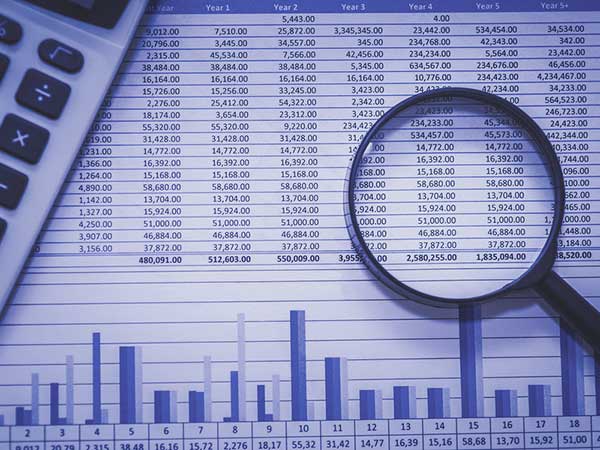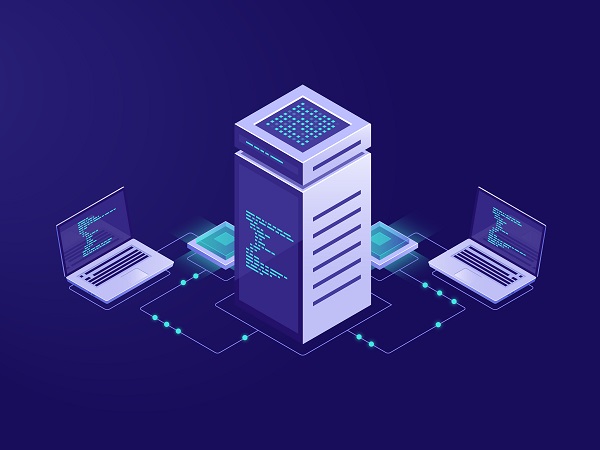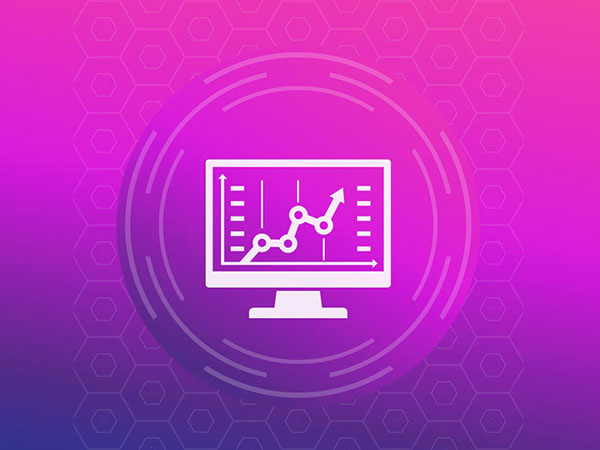As more and more of life’s day-to-day work and personal activities are being simplified by Big Data technologies, the need for data scientists has risen remarkably for the past several years. Companies around the world scamper desperately to grab people with data science skills, and are willing to shell out big bucks to keep these data-crazed workers in their payroll. Experts agree that data science is still in its fledgling state, it will become a pervasive force pretty soon. If you want to learn data science and become a data science expert, check out our reviews of the following courses!
1. Harvard Data Science Course
The course is a combination of various data science concepts such as machine learning, visualization, data mining, programming, data munging, etc. You will be using popular scientific Python libraries such as Numpy, Scipy, Scikit-learn, Pandas throughout the course. I suggest you to complete machine learning course on coursera before taking this course, as machine learning concepts such as PCA (dimensionality reduction., k-means and logistic regression are not covered in depth. But remember, you have to invest lot of time to complete this course, especially the home work exercises are very challenging.
If you are good at statistics and programming take this course. 2014 version of Harvard data science course is going on. You can access the lecture videos here.
Prerequisites: Cs50 and Stat 100
Programming Language: Python
Course Length: 4 months
Difficulty: Very high
Taught By: Hanspeter Pfister and Joe Blizsten
Reviews by others:
- Vincent granvelli has written a detailed review about this course.
- What is it to take cs109 — on Quora
- Ms. Natalia has written a review about this course.
2. Analytics Edge
The course gives a good intro to R and also gives hands on experience with statistical modelling techniques. The course has real world examples of how analytics have been used to significantly improve a business or industry. The workload is high, but the lectures and problem sets are well organized and structured. If you’re interested in learning some practical analytic methods that don’t require a ton of math background to understand, this is the course for you.
Prerequisites: Basic knowledge of mathematics
Programming Language: R, Libre office/Excel
Course Length: 11 weeks
Difficulty: High
Taught By: Dimitris Bertsimas and Allison Kelly O’Hair
Reviews by others: Course Talk.
3. Data Scientist training certification
This course covers statistics, machine learning, R and SAS programming from scratch.
The course is an excellent one for beginners who don’t have a programming background but want to become a data scientist.
There are 4 real life industry based projects available in this course, out of which you should complete one to get certified. You should also clear their online examination with 80% score to get certified.
There are also four additional projects are a for you to work on.
As the course covers a broad range of concepts, I would recommend you to complete all the eight projects to get the most out of the course. So that you get a practical experience and have a good set of projects to speak about during your interview.
Prerequisites: Basic knowledge of statistics and machine learning
Programming Languages: SAS and R
Course length:
Difficulty: Intermediate
Taught By: Lillian Pierson( Course advisor.
4. Data Analyst Nano Degree Udacity
A Nanodegree, provided by Udacity and AT&T , is an online certification that you can earn in 6-12 months (10-20 hours/week. for $200/month. Udacity’s Data Science track teaches R, Python, MongoDB and Hadoop. The courses cover both theory and practice of Data Science, and every course ends with a project that allows you to demonstrate what you learned. The projects can be the start of your portfolio of work to share with others, especially recruiters. The prerequisites are pretty high, you need a variety of skills before taking this course.
Prerequisites: Descriptive statistics, Inferential statistics, data wrangling, R, machine learning, data visualization, data science basics, computer science basics.
Course Length: 12 months(10 hours/ week.
Difficulty: Very high
Taught by: Chen Hang Lee and Miriam Swords Kalk
5. Introduction To Computational Thinking And Data Science
The course provides a brief introduction to plotting, stochastic programs, probability and statistics, random walks, Monte Carlo simulations, modeling data, optimization problems, and clustering. Even if you have little programming experience you can learn a lot from this course. The course serves as a motivation for the beginners in Python and data science.
Prerequisites: Introduction to computer science and python programming
Programming Language: Python
Course Length: 9 weeks(12 hours/week.
Difficulty: Intermediate
Taught by: John Guttag, Eric Grimson, Ana Bell
Reviews about the course: Mooctivity
6. Coursera Intro To Data Science Course
The class gives a broad introduction to various concepts of data science. The first programming exercise “Twitter Sentiment Analysis in Python” is challenging, and rest of the assignments requires less time commitment. Professor Bill Howe assumes that you know statistics, Python, and SQL, you really need to know them because the lectures are so poor. Before taking this course, go through standford’s data base course, learn Python programming concepts from code academy, learn basic statistics, and basics of machine learning. Don’t expect this course to introduce you to these concepts. Despite its shortcomings, the course explains a lot about relational databases, Map Reduce and No -sql. The course is not intended for beginners.
Prerequisites: Basics of Python, statistics, basic knowledge of databases.
Taught by: Bill howe
Programming language: Python and R
Length: 3 months
Difficulty: intermediate
Reviews about the course: Course Talk and Quora
7. Johns Hopkinson Data Science Course
R programming, exploratory data analysis and cleaning data modules are really well taught and practical. The statistical inference and regression model structure modules are not well organized; they have too much material for some one new to it. Data scientist tool box module is a waste of time; you can see the reviews of this module here: data science tool box.
Project swirl is a fun way to learn R. Most of the time the professor just reads the slides without adding any additional information. Certain concepts are not clearly explained, so you will spend more time googling and learning those concepts. It is too traditional and too heavy in statistics in particular.
Prerequisites: Working knowledge of mathematics up to algebra and some programming knowledge.
Taught by: Brian Caffo
Programming language: R
Length: 12 months
Difficulty: Intermediate
Reviews about the course: Tech Powered math
8. Foundations Of Data Analysis
The course focuses only on statistics and gives hands on experience with descriptive and inferential statistical concepts in R. If you want to learn R and statistical concepts, then this course is for you. You will be working with a well formatted data sets, so you won’t be learning data munging in this course. At end of this course you will be comfortable using different statistical techniques to solve your own problems about your own data using R.
Prerequisites: None
Taught by: Micheal J. Mahometa
Programming language: R
Length: 13 weeks(3-6 hours/week.
Difficulty: Intermediate
Reviews about the course: Course Talk
9. Data Science In Action
The course is based on the book “Process Mining” written by professor Wil van der Aals. If you are a business professional and don’t have prior programming experience, then this course is for you. The course acts as a classical divide between “business” and “IT”. The course uses many examples using real-life event logs to illustrate the concepts and algorithms. After taking this course, you will be able to run process mining projects and have a good understanding of the Business Process Intelligence field.
Prerequisites: A basic understanding of logic, sets, and statistics (at the undergraduate level..
Taught by: Wil Van Der Aalst
Programming Language/Tools: ProM, Disco, Rapid Miner
Length: 13 weeks(3-6 hours/week.
Difficulty: Easy
10. Mining Massive Datasets
The class will introduce you to fundamental algorithms and techniques to deal with Big Data, such as MapReduce, Locality Sensitive Hashing, Page Rank, and algorithms for Large Graphs and Data Streams. It will teach you how to apply these tool-kits to important practical applications, such as Web Search, Recommender Systems and Online Advertising. This course gives a special attention to dimensionality reduction. A book based on this course is available for free. The course expects you to have good knowledge of database and algorithms.
Prerequisites: Basic course on algorithms, data structures and databases
Taught by: Jure Leskovec, Anand Rajaraman, Jeff Ulman
Programming Langauge/Tools: SQL
Length: 7 weeks
Difficulty: Intermediate
Reviews about the course: Quora
One last course:
Machine Learning Course On Coursera
Data science and machine learning are closely related. Apart from machine learning the course shows you how to handle high dimensional data(Pca., introduces to map reduce, bias vs variance, learning curves, etc. The course is taught using Octave( alternative for matlab., there are set of videos that shows you how to use octave. It is better to have some knowledge of calculus before taking this course, so Consider taking MIT multivariable calculus course.
Prerequisites: Basic linear algebra and Calculus
Programming Language: Octave
Course Length: 11 weeks
Difficulty: Low
Taught By: Andrew Ng
Reviews by others:
- Class Central Machine learning course Review
- Course Talk Machine learning course Review
Conclusion:
Some of the upcoming courses in data analysis are computational methods for data analysis, data analysis and statistical inference, coding the matrix. Data camp is a great place to learn R. To learn Python for data analysis, you can check out my post.
So, what other courses are worth taking if you want to get a good education in data science?















